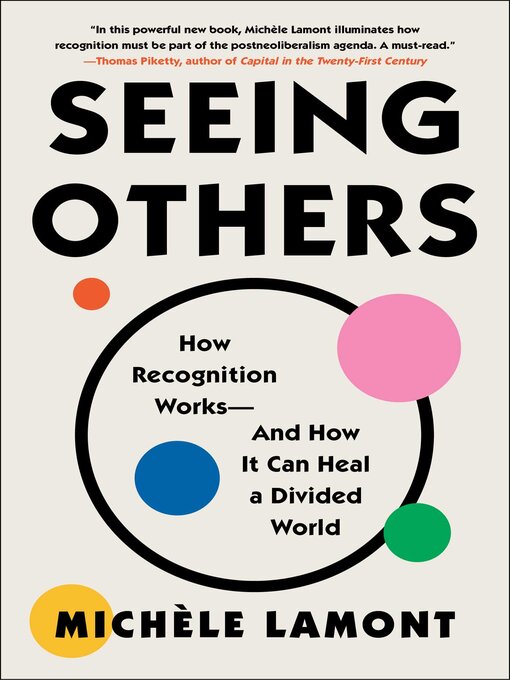In this capstone work, Michèle Lamont unpacks the power of recognition—rendering others as visible and valued—by drawing on nearly forty years of research and new interviews with young adults and cultural icons—from Nikole Hannah-Jones and Cornel West to Michael Schur and Roxane Gay.
Decades of neoliberalism have negatively impacted our sense of self-worth, up and down the income ladder, just as the American dream has become out of reach for most people. By prioritizing material and professional success, we judge ourselves and others in terms of self-reliance, competition, and diplomas. The foregrounding of these attributes of the upper-middle class in our values system feeds into the marginalization of workers, people of color, LGBTQIA+ individuals, and minority groups. The solution, Lamont argues, is to shift our focus towards what we have in common while actively working to recognize the diverse ways one can live a life. Building on Lamont's lifetime of expertise and revelatory connections between broad-ranging issues, Seeing Others delivers realistic sources of hope: by reducing stigma, we put change within reach.
Just as Robert Putnam's Bowling Alone did for a previous generation, Seeing Others strikes at the heart of our modern struggles and illuminates an inclusive path forward with new ways for understanding our world.
-
Creators
-
Publisher
-
Release date
September 12, 2023 -
Formats
-
Kindle Book
-
OverDrive Read
- ISBN: 9781982153809
-
EPUB ebook
- ISBN: 9781982153809
- File size: 2698 KB
-
-
Languages
- English
-
Reviews
-
Kirkus
August 1, 2023
A Harvard sociologist examines how inequality plays out in categorizing people in such a way as to render some voiceless--and effectively invisible. Lamont, the author of How Professors Think and The Dignity of Working Men, is a longtime student of inequality and marginalization, and she shows how both have helped promote "some of the factors driving the far right and white nationalism." Attitudes toward marginalized communities are malleable, notes the author, precisely because they are artificial constructs. For example, "in 1973...90 percent of Americans disapproved of homosexual relations, but by 2019 that number had fallen to 21 percent." Much of society seemed to say, "we see you; we value you, and we invite you to take a seat at the table alongside us." Now, with economic precarity and the feeling of so many middle-class Americans that they are losing ground to people they perceive to be less worthy, such a declaration is more needed than ever to destigmatize poor, immigrant, and outlier communities--and, she adds, for those in more comfortable circumstances to try to stop denigrating those who are struggling, regardless of political affiliation. "All of these--narratives, stigmas, stereotypes, and social hierarchies--are produced by human beings and thus changeable," writes Lamont. Although the prescription is doubtless one that many people on all sides will find difficult, the author believes "we can all cultivate a wider range of friends and relationships across class and racial boundaries," which may help reduce automatic, negative reactions to those who are "perceived as the losers of the system." There's no Pollyannaism in Lamont's decidedly left-leaning program, though one wonders whether, given the increased divisiveness of America, it's in any way practical. One hopes. Though not as deeply insightful, Lamont's book complements Anand Giridharadas' The Persuaders. A thoughtful recipe for building social justice by being less judgmental.COPYRIGHT(2023) Kirkus Reviews, ALL RIGHTS RESERVED.
-
Formats
- Kindle Book
- OverDrive Read
- EPUB ebook
subjects
Languages
- English
Loading
Why is availability limited?
×Availability can change throughout the month based on the library's budget. You can still place a hold on the title, and your hold will be automatically filled as soon as the title is available again.
The Kindle Book format for this title is not supported on:
×Read-along ebook
×The OverDrive Read format of this ebook has professional narration that plays while you read in your browser. Learn more here.

